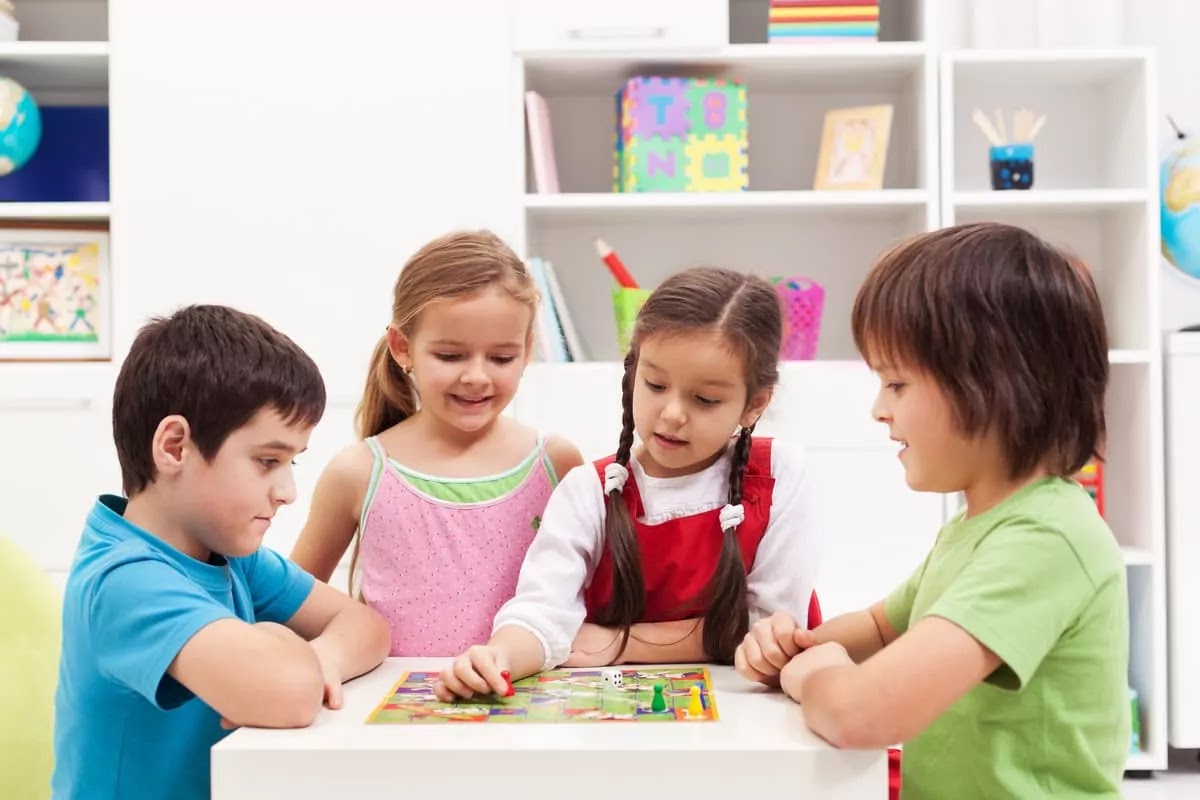Introduction: Board games have long been a popular pastime for children, offering entertainment and social interaction. However, recent studies have shown that board games can also play a significant role in enhancing children's math skills. This article explores the positive impact of board games on young children's mathematical abilities and highlights the benefits of incorporating them into educational settings.
Board Games: More Than Just Fun and Games Board games offer a unique blend of entertainment and learning opportunities. Traditional board games such as Monopoly, Chess, and Scrabble require strategic thinking, problem-solving, and numerical calculations. By engaging in these activities, children unknowingly develop and reinforce their mathematical skills in a fun and interactive manner.
Developing Numerical Fluency through Board Games One of the key advantages of board games is their ability to improve children's numerical fluency. Counting spaces, moving game pieces, and keeping track of scores all involve basic arithmetic calculations. Children learn to perform mental calculations quickly and accurately as they play, helping them develop a solid foundation in mathematical operations such as addition, subtraction, multiplication, and division.
Also Read:- Hi-Fi Rush Dev Addresses Xbox Exclusivity Concerns, Confirms No Shelving of Platforms after Acquisition
- Shrinking Arctic Glaciers Unearthing a New Source of Methane
Enhancing Problem-Solving Skills Board games often present players with challenges that require problem-solving skills. Analyzing game situations, planning strategies, and making decisions based on limited information all contribute to the development of critical thinking and logical reasoning abilities. Through repeated exposure to these problem-solving scenarios, children learn to apply mathematical concepts and principles to real-life situations.
Promoting Spatial Awareness and Geometry Skills Many board games incorporate spatial awareness and geometry, encouraging children to think visually and understand spatial relationships. Games like Blokus and Tangrams require players to manipulate geometric shapes and fit them into specific patterns or configurations. By engaging in these activities, children enhance their spatial reasoning skills, which are crucial for understanding concepts such as symmetry, angles, and transformations.
Fostering Collaboration and Communication Board games often involve social interaction and collaboration, fostering communication and teamwork among players. Cooperative games like Pandemic or Forbidden Island require players to work together towards a common goal. Through such experiences, children develop important interpersonal skills, including effective communication, negotiation, and problem-solving as a team. These skills not only contribute to their mathematical development but also prepare them for future academic and professional endeavors.
Incorporating Board Games in Educational Settings Recognizing the educational benefits of board games, many schools and educators are incorporating them into their curriculum. By integrating board games into classroom activities, teachers can create an engaging and interactive learning environment. Board games provide an avenue for hands-on learning, making abstract mathematical concepts more tangible and accessible to students. Moreover, they can be used to differentiate instruction and cater to individual learning styles, fostering a positive attitude towards math.
Board games offer a valuable tool for enhancing children's math skills while providing an enjoyable and interactive learning experience. Through gameplay, children develop numerical fluency, problem-solving abilities, spatial awareness, and teamwork skills. By incorporating board games into educational settings, educators can harness the potential of these games to create a positive impact on students' mathematical development. So, the next time you gather around the table for a board game session, remember that you are not just having fun—you are also building essential mathematical skills.
Read More:- The Pros and Cons of Smart Homes: Balancing Convenience and Privacy
- Ancient Feathers: How Some Birds Survived Mass Extinction
That's it for this article.
Thanks for Visiting Us – Mirror7News.com


Post a Comment